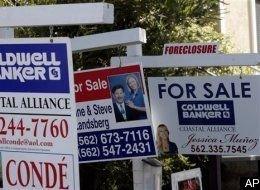Between June 2008 and May 2009, of the 4,690 homeowners who were able to negotiate with their banks through this program, 2,776 succeeded in holding on to their homes.
 If my house belongs to me, and if my city helps me keep it when I am going through a difficult time, my feeling of belonging to this city will be reinforced. In Philadelphia, just such a philosophy has inspired the city to launch a program to prevent foreclosures. The program requires the bank representative and the threatened homeowner to meet, in a setting designed for this purpose, and in the presence of a mediator. In one year, the number of foreclosures that appeared inevitable has been reduced by 60 percent. Between June 2008 and May 2009, of the 4,690 homeowners who were able to negotiate with their banks through this program, 2,776 succeeded in holding on to their homes.
If my house belongs to me, and if my city helps me keep it when I am going through a difficult time, my feeling of belonging to this city will be reinforced. In Philadelphia, just such a philosophy has inspired the city to launch a program to prevent foreclosures. The program requires the bank representative and the threatened homeowner to meet, in a setting designed for this purpose, and in the presence of a mediator. In one year, the number of foreclosures that appeared inevitable has been reduced by 60 percent. Between June 2008 and May 2009, of the 4,690 homeowners who were able to negotiate with their banks through this program, 2,776 succeeded in holding on to their homes.
The city, its banks, and its citizens – everyone wins with this kind of program and, above all, the bond, the philia, that connects citizens with a city, is infinitely enriched.
It should be noted that the program with the same objective, launched by the American government in February 2009, has not had the same degree of success, because the meeting between the banker and the homeowner is not obligatory.
Two lessons can be learned from the success of Philadelphia’s program: First, it is through real contact between two people that a problem caused originally by abstract, anonymous relationships between the parties may be resolved. Second, through the implementation of a preventative legal measure, litigation that is costly for all and potentially ruinous for some is avoided.



 The editor of L'Encyclopédie de L'Agora and well known newspaper chronicler and philosopher, analyses actuality through the looking glass of Belonging.
The editor of L'Encyclopédie de L'Agora and well known newspaper chronicler and philosopher, analyses actuality through the looking glass of Belonging.